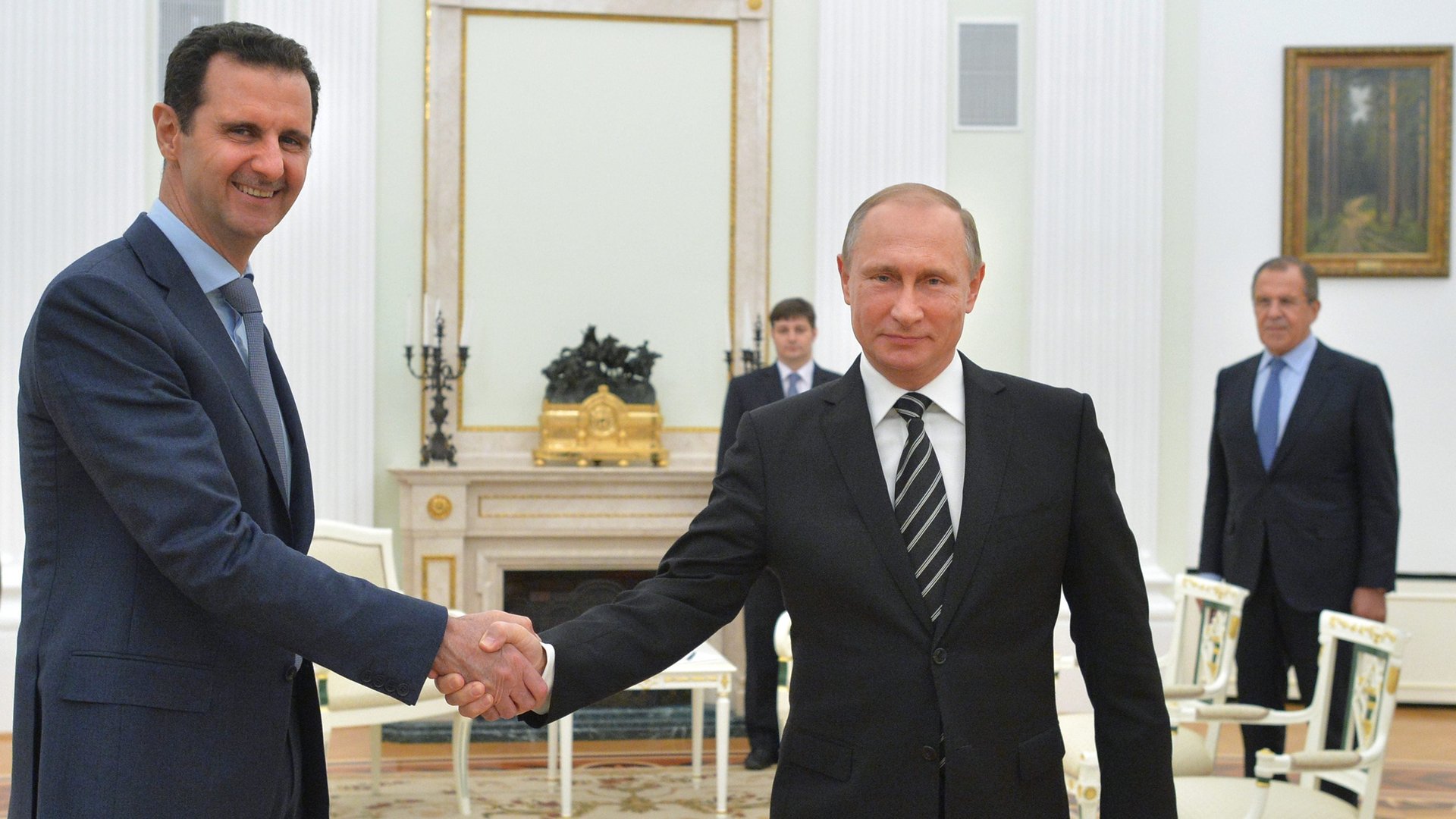What’s really going on in America’s confrontation with Russia in Syria
On the surface, Washington and Moscow’s latest spat over Syrian airspace sounds worryingly like a precursor to war between the two nuclear powers. In reality, this was just the latest and loudest in a series of maneuvers, as the two Cold War adversaries posture over whether the Syrian government or the Kurds end up with most of the land left behind by a rapidly retreating Islamic State.


On the surface, Washington and Moscow’s latest spat over Syrian airspace sounds worryingly like a precursor to war between the two nuclear powers. In reality, this was just the latest and loudest in a series of maneuvers, as the two Cold War adversaries posture over whether the Syrian government or the Kurds end up with most of the land left behind by a rapidly retreating Islamic State.
Here’s how it all breaks down:
The build-up: The US shot down a Syrian government warplane on Sunday (June 18) after it had dropped bombs near US-backed forces.
The response: Russia angrily said it would target any aircraft or drones from the US-led coalition that went West of the Euphrates river, and it was suspending a US-Russia hotline that had been used to avoid collisions.
What’s really going on? While this is a ratcheting up of US-Russia tensions over Syria, this is not likely to turn into a war, says Joshua Landis, head of the Middle Eastern Studies Center at the University of Oklahoma.
Key to the dispute is the fact that ISIL has seen its Syrian territory shrink from around 40% to 50% of the country to roughly 20% in recent months, Landis says. This is really a “negotiation,” he says, over which of the superpowers’ allies—for Russia, the government of Bashar al-Assad; for the US, the Syrian Kurds—will take crucial territory that ISIL is going to leave behind as its forces retreat from its would-be caliphate.
The stand-off has been brewing for a while. As niftily demonstrated in this map by Axios, the Kurds have been pushing back ISIL in northeast Syria with great success over the last few months and have taken vast swathes of land. Their stated aim is to end up with an autonomous state within Syria, similar to the one enshrined for Kurds in Iraq.
But there’s a major problem with that plan: as Landis puts it, “The Kurds have no money.” Nor do they have an air force. That means that if they don’t take make big territorial advances, “they’ll be entirely dependent on the US Air Force from now to eternity, and the United States will be stuck in a quagmire, defending a new Kurdish state that America had partnered with to defeat [ISIL],” Landis says.
There’s one way to ease this putative new state’s dependence on Washington, however, Landis says. That’s for the Kurdish forces to take Deir al-Zour, the major regional city and the hub for its oil fields. That way, the Kurds would be able to afford to buy airplanes from the US, rather than require Washington to give them for free.
No other forces in the region are keen on this outcome, however. Assad wants as much control of Syrian territory as possible and is counting on Russian and Iranian support for that aim. Turkey meanwhile is fiercely opposed to anything that might empower the restive Kurds in its country.
So, as tensions heat up over which side takes the linchpin city of Deir al-Zour, the US was sending a message. That is: “If the Russians and Iranians keep the Syrians and other allies away from the Americans, the US won’t hit them,” says Daniel Serwer, director of Johns Hopkins University’s conflict management program. “[This is] the US making it very clear that these things are being done only to protect American assets…and American-backed troops are considered an asset in this case.”
Russia’s threat and the suspension of the treaties is its message in response: Russia and Turkey have both said the Euphrates river should be the “natural boundary” of any new Kurdish state—while Deir al-Zour lies on the other side of that boundary, Landis says.
As for Russia and the United States: “This conflict does threaten potential war between the US and Russia but my hunch is there’ll be a lot of gnashing of teeth and growling between the Russians and Americans,” he said. “But I don’t think Russia or the US is prepared to go to war for Syria—they’re just figuring out where new boundaries are.”
Serwer agreed: “I have no doubt we’ll lean over backwards to prevent war with Russia,” he said. “I think they’ll probably do the same.”